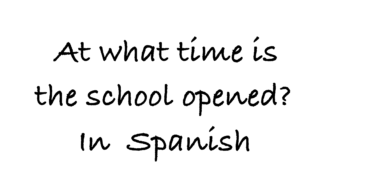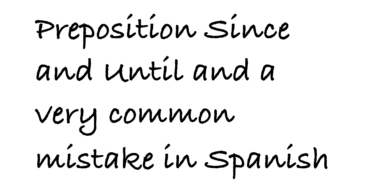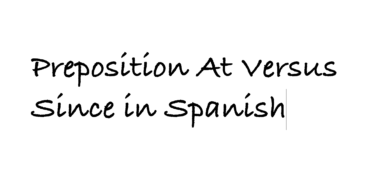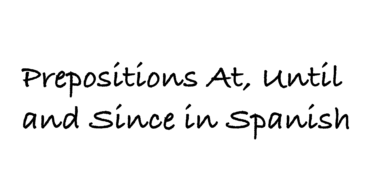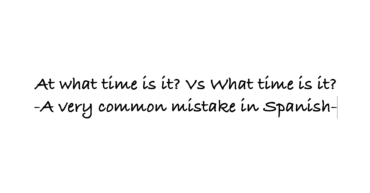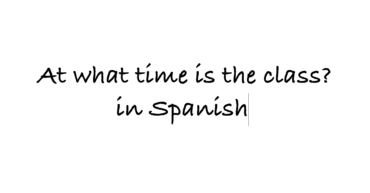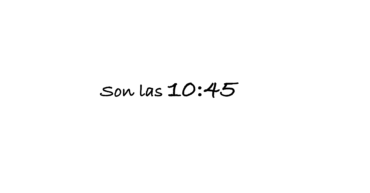We are going to introduce the adjective –OPEN– that will be useful for our communication, eventually. Of course, like English, we do have the verb –TO OPEN– to express when a place opens, but it is not time yet to see verbs, so we will stick with -SER- and -ESTAR- and the different uses. First […]
In this post, we are going to see a very common mistake that people make when try to use the different prepositions that we have learned –A, DESDE y HASTA-; let’s see it in a clear example to show you what we are trying to say. Here it is the question first, asking a specific […]
In this post, we are going to try to clarify a bit more the difference between the two prepositions –AT and SINCE– that eventually can be a little bit confusing in their use. Let’s start with –AT-. The preposition –A– At, as we may know, expresses in the time sphere, the occurring time of some […]
We are going to learn 3 prepositions that are going to let us express with more detail the starting or ending point in time of any activity. It is time to see A -At-, HASTA -Until- and DESDE -since-: INGLÉS ESPAÑOL AT A UNTIL HASTA SINCE DESDE → Remember the preposition –A– . The preposition […]
The title of the post sounds a bit weird, isn’t it?. Well, in this very blog we are going to see a very common mistake that people make in this first stages when they are expressing –At what time is it?– and –What time is it?-; Let’s see it in a clear example to show […]
Let’s see a very important expression in Spanish, as well as in English – At what time is it? -. It is the moment of giving points in time; first of all, let’s see a new time preposition: INGLÉS ESPAÑOL AT A Therefore: ¿A QUÉ HORA ES LA CLASE? AT WHAT TIME IS THE CLASS? 2:00 PM LA […]
We are almost ready to express the time that we are in. Now, is time to be shown, the vocabulary of sharp times within the day: Noon time, Midnight and an hour O’clock: 12:00 AM → Midnight → MEDIANOCHE 12:00 PM → Noon → MEDIODÍA Therefore: ¿QUÉ HORA ES? WHAT TIME IS (IT)? 12:00 AM → ES MEDIANOCHE (IT) IS […]
Time has already been explained in the difference of hours and minutes, but yet, we have to be more specific about the moment of the day of those times: Morning, afternoon, evening or night –AM or PM-. In Spanish, of course, we also specify the moment of these periods of the day that we are […]
As we had said in the previous post, we are going to keep adding minutes to the clock; now, from 30 minutes onwards. It is a very special and Spanish way of telling time from 30’ onwards. Is actually very easy in idea but annoying because it is something that is not really normal in […]
Now that we have already seen sharp times in another post, let’s add minutes after the hour. Remember: ¿QUÉ HORA ES? WHAT TIME IS (IT)? 1:00 → ES LA UNA (IT) IS THE ONE → (IT’S ONE) 2:00 → SON LAS DOS ARE THE DOS → (IT’S TWO) Let’s add minutes in the […]

